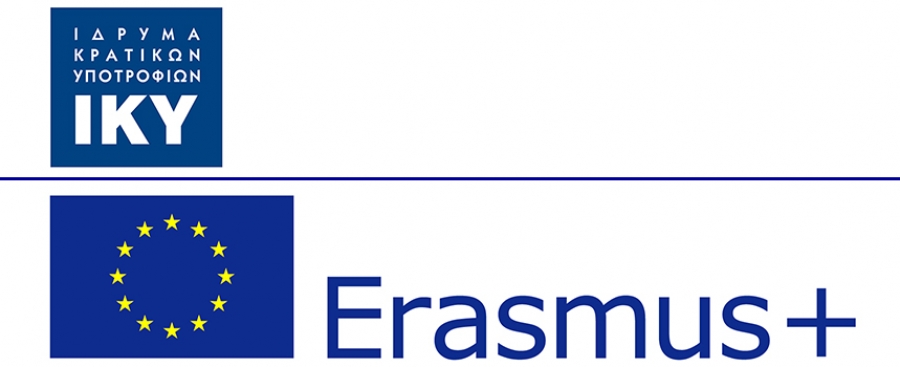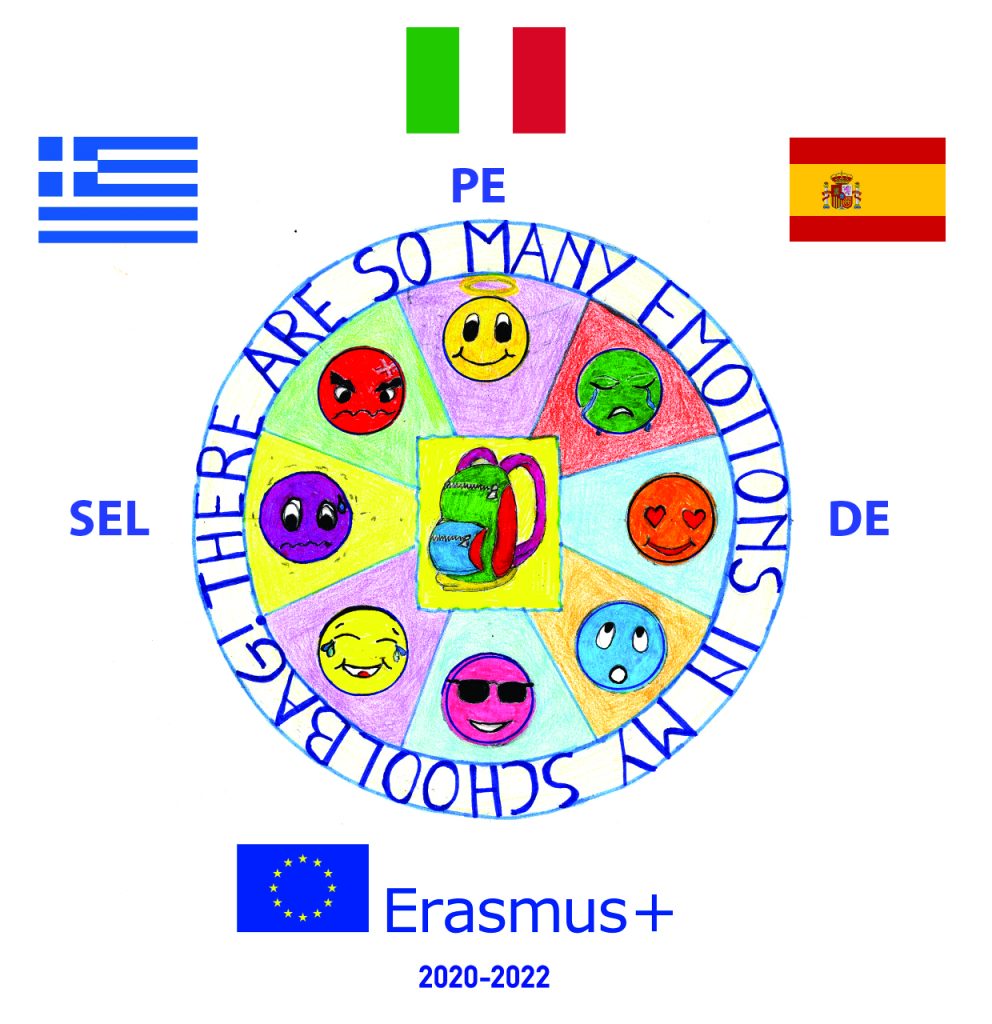
Erasmus+ 2014-2020 School Exchange Partnership
“Exploring the implementation of Social and Emotional Learning (SEL) in Primary Schools across the subject areas of Physical Education (PE) and Drama in Education (DE)”
COORDINATOR
28th Elementary School of Trikala
PARTNER ORGANIZATIONS
Istituto Comprensivo Statale Ignoto Militi
Escola Teresa Miquel i Pamies
Ceip El Carmen
13th Primary School of Trikala
Istituto Dei Sordi Di Torino

Over the past few years teachers seem to make exceptionally strenuous efforts to handle their students’ discipline (and general behavior) and motivation problems. A response to the children?s disruptive behavior (due to social problems) and lack of motivation is the development of life skills, especially, social emotional competencies. Although the notion of affective teaching is considered central in class management and quality education (reflected in international guidelines and in the educational policies and curricula of many nations), only few teachers receive support on how they can develop social and emotional skills in their mainstream teaching.
In our project, the curricula of Physical Education (PE) and Drama in Education (DE) were selected to serve as vehicles in Social Emotional Learning (SEL) due to their experiential nature. Experiential learning gives to students the opportunities to learn in authentic situations in the school. Thus, the learning becomes significantly more powerful, the students connect their learning to actual experiences, they have opportunities for reflection and draw meaning from their reflections, they create new learning and transfer their learning into the next experience, and they acquire increased motivation for learning and real-world problem-solving skills which can help them to become self-directed learners.
This project aspired to explore the integration/implementation of SEL teaching strategies/practices across the subject areas of PE and DE in primary school. Most of the practices were derived from PE and DE and all of them were experiential. The project attempted to provide recommendations on both structured programs of PE and DE and potential everyday teaching (flexible) practices in other subjects which classroom teachers deliver.
The project’s main objective was two-fold; to support teachers in their professional development by focusing in particular on SEL teaching strategies/practices and to develop students? SEL competences. SEL teaching strategies/practices were presented and implemented from two separate but essentially similar perspectives, that is, (a) the Casel?s SEL framework (Collaborative for Academic, Social, and Emotional Learning, 2017) (www.casel.org) and (b) the Teaching Personal and Social Responsibility (TPSR) model (Hellison, 2011) using as vehicles the curricula of DE and PE respectively. As expected, SEL integration in teachers? teaching led to their students? development of SEL COMPETENCIES and PERSONAL-SOCIAL RESPONSIBILITY and subsequently to a substantial contribution in the reduction of conduct problems, in the improvement of academic performance and of whole school climate as well.
Specifically, project objectives were achieved, firstly, through the collaborative and guided development of simple activities, routines, strategies (in the form of particular LESSON PLANS) in the subjects of PE and DE that teachers used to promote their students’ SEL, secondly, through the implementation of these activities in the particular subjects of PE and DA, and, third, through the transfer and incorporation of the basic principles of SEL combined implementation in PE and DE to other school subjects, everyday teaching strategies of classroom teachers and whole-school ethos and policies (e.g. conflict resolution).
Teachers of the partner organizations assigned with the development and implementation of the SEL lesson plans were trained by experts in PE and DE through authentic experiential workshops and were given the necessary theoretical framework and tools to implement the SEL lesson plans. At the same time, the progress of the project was continuously supported and monitored; practitioners engaged were given continuous guidance and feedback by the coordinating organization either by distance (e.g. mail, virtual meetings, instant messaging) or in real classroom settings during every LTTA.
Two different age groups of students (one from 6 to 9 and one from 10 to 12) of each partner school were taught SEL through PE and DE at the same time. However, principles (derived from SEL implementation in PE and DA), messages, routines, strategies and norms were aligned across the classroom (i.e. class rules) and whole-school setting (i.e. anti-bullying policies), in order for all students to learn and apply social and emotional skills more rapidly and more effectively. Thus, the whole school staff as well as all the students of each school was ultimately involved in the process.
In the end, an attempt was made to evaluate the impact of the above mentioned SEL experiential activities on students, teachers, and school climate in an informal (teacher reports or student academic records) or formal way (validated observation tools or questionnaires) or both. A compilation of multiple sources of evidence provided a picture of the project effectiveness or areas of possible improvement.
The impact of the participation of the involved schools seemed to be immediate, global, and multidimensional. Students participating in our SEL program showed improved classroom behavior and motivation, an increased ability to manage stress, and better attitudes about themselves, others, and school. Substantial improvement of school climate became obvious according to teachers? reports. Classroom teachers acquired experience in planning, supporting, and monitoring SEL programs and assessing their effectiveness. SEL life skills are expected to have a long-term impact and benefit to students? life because ?SEL is the process through which students, young people and adults acquire and apply the knowledge, skills, and attitudes to develop healthy identities, manage emotions and achieve personal and collective goals, feel and show empathy for others, establish and maintain supportive relationships, and make responsible and caring decisions? (CASEL.org).
Finally, it is worth-mentioning that there was limited engagement of parents (to reinforce skills in home environment) due to covid-19 restrictions that mostly hindered their direct involvement in our project with physical presence. However, a network of local elementary schools was build to expand SEL delivery in schools out of the program. A compelling case on the benefits of SEL was made for local stakeholders (in instances of interviews, meetings, and presentations) to promote SEL and include it in educational policies and curricula.
MORE MATERIAL in the particular LTTA sections...